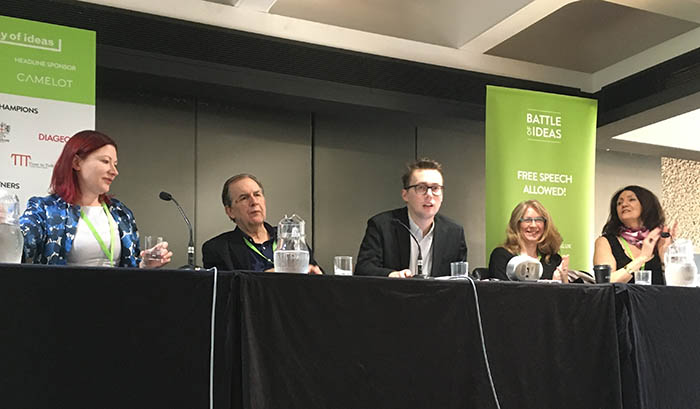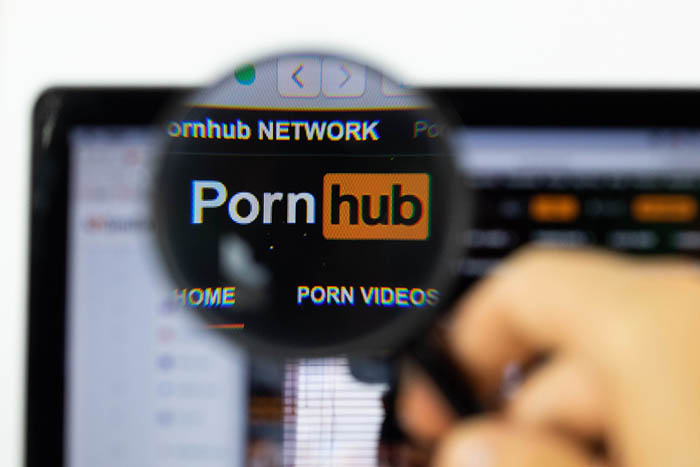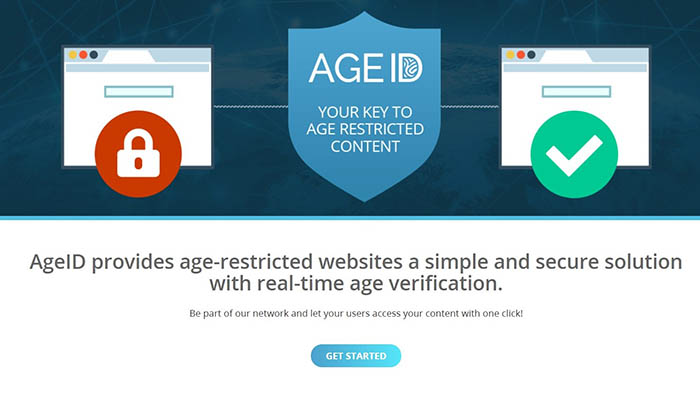30 Mar 2020 | News
[vc_row][vc_column][vc_single_image image=”112844″ img_size=”full”][vc_column_text]When the political scientist and historian Benedict Anderson wrote about nations in his 1983 book Imagined Communities, he said that belonging to them was particularly felt at certain moments. Reading the daily newspaper for one; watching those 11 men representing your country on the football field another. If Anderson were alive today, he might add “getting a government text message” to the list. Last Tuesday people throughout the UK all shared in this experience. Following Prime Minister Boris Johnson’s announcement the night before that we must all stay in, with few exceptions, the nation’s phones pinged to the alert “New rules in force now: you must stay at home. More info and exemptions at gov.uk/coronavirus Stay at home. Protect the NHS. Save lives.” It was a first. The government had never before used the UK’s mobile networks to send out a message on mass.
By “force” the message meant exactly that. Police now have the power to fine those who flout the new rules. Quickly videos have emerged of officers approaching people on the streets, such as one showing sunbathers in Shepherd’s Bush being told to leave, and photos of a 25-person strong karaoke party that was dispersed this weekend. Almost overnight we went from being a nation where most people could come and go as they pleased to one in which we can barely leave our front door.
State-of-emergency measures are necessary in a real crisis, which is where we land today. Hospital beds are filling up fast, the death toll is rising, the threat of contagion is real and high. Few would argue that something drastic didn’t need to be done. But that does not mean we should blindly accept all that is happening in the name of our health. Proportionality – whether the measures are a justified or over-reaching response to the current danger – and implication – how they could be used in other aspects – are questions we should and must ask.
The new rules of UK life have been enshrined in the Coronavirus Bill. The bill, a complex and lengthy affair, gives the government a lot of power. Take for example the rules that allow authorities to isolate or detain individuals who are judged to be a risk to containing the spread of Covid-19. What exactly does a risk mean? Would it be the journalist Kaka Touda Mamane Goni from Niger, who last week was arrested because he spoke of a hospital that had a coronavirus case and was quickly branded a threat to public order? Or how about Blaž Zgaga, a Slovenian journalist who contacted Index several weeks back to say he had been added to a list of those who have the disease (something he denies) and must be detained? This followed him calling up the government on their own coronavirus tactics. He’s currently terrified for his life.
It’s easy to dismiss these examples as ones that are happening elsewhere and not here, until one day we wake up and that’s no longer the case.
And while many of us might be far away from authoritarian nations like China, whose government is tracking people’s movements through a combination of monitoring people’s smartphones, utilising now ubiquitous video surveillance and insisting people report their current medical condition, it might only be a matter of time before we catch up.
Singapore, another country with a state that has a tight grip on its population, has already offered to make the app they’re currently using to track exposure to the virus available to developers worldwide. The offer is free but at what other costs? The Singaporean government has been working hard to allay privacy concerns and yet some linger. Will people invite this new technology in their lives? Amid the panic that coronavirus has created, it’s not hard to imagine a scenario in which such tools are imported, embraced and normalised. As Israeli historian Yuval Noah Harrari writes in the FT:
“A big battle has been raging in recent years over our privacy. The coronavirus crisis could be the battle’s tipping point. For when people are given a choice between privacy and health, they will usually choose health.”
The coronavirus bill was meant to come with an expiry date, a “sunset clause” of two years, at which stage all former laws fall back into place. The sunset clause has since been removed, and instead in its place is a clause stating the legislation will be reviewed every six months. Politicians have also sought assurances that the measures will only apply to fighting the virus, to which they have been told yes they will only be used “when strictly necessary” and will remain in force only for as long as required. All positive and stuff we should welcome. And yet how often do politicians say one thing and do another? We must be watchful and hold them to their word.
This is particularly important with the clause that enables authorities to close down, cancel or restrict an event or venue if it poses a threat to public health, a clause that has bad implications for the ability to protest. Of course in the digital age there are many ways beyond going out on to the streets to make your voice heard. And even without the internet, we’ve seen several creative forms of protest from inside the home, such as the Brazilians who have shouted “get out” and bashed kitchenware at the window as a way to voice anger at President Jair Bolsonaro.
Marching on the streets in huge numbers is, however, amongst the most effective, hence its endurance. If in six months’ time the virus is under control and social distancing is no longer essential, this clause should at point-of-review be removed. And if it isn’t, we need to fight really hard until it is. Protest is one of the key foundations of a robust civil society. It’s not a right we want to see disappear.
The great British philosopher John Stuart Mill argued in On Liberty that “the only purpose for which power can be rightfully exercised over any member of a civilized community, against his will, is to prevent harm to others.”
The coronavirus crisis passes Mill’s liberty test. It is causing harm to a great number of people. It’s therefore important to take it seriously and to provide the state with adequate powers to fight the pandemic, even if that means losing some of our freedoms in the here and now. At the same time we must make sure politicians do not use this moment to tighten their grip in ways that, as stated, are disproportionate and easily manipulated. And once this is all over we expect the bill to expire too, and any apps that might no longer be necessary. Our freedoms, so hard fought for, can be easily squandered. Let’s not lose liberties on top of lives.[/vc_column_text][/vc_column][/vc_row][vc_row][vc_column][/vc_column][/vc_row]
6 Nov 2019 | Event Reports, News
[vc_row][vc_column][vc_column_text]

Tiffany Jenkins, David Vincent, Tom Slater, Jodie Ginsberg and Susan Edwards at the Battle of Ideas festival in November 2019. Credit: Michael Gregory
Privacy, especially in the digital age, is less a matter of isolation and more one of of interpersonal relationships. This was the general consensus of panellists at From Domestics to Banter: Is Anything Private Anymore?, a debate at the Battle of Ideas festival on 2 November at the Barbican, London.
The panel, chaired by Spiked deputy editor Tom Slater, included Index on Censorship CEO Jodie Ginsberg: “The question for me is not so much one of privacy; it then becomes a question of trust,” Ginsberg said. “How do we form a contract of trust with those with whom we are communicating?”
“The capacity to understand another on the basis of such limited verbal communication is both a consequence of privacy and a reflection of its value,” said author and historian David Vincent. For that communication to be effective, trust must be established between those involved where privacy is maintained, he added.
For Vincent, one of the first casualties of our eroding privacy is also the most personal — intimacy. He made the case for the preservation of privacy by arguing for the preservation of the private person.
“There is an unevenness in the notion of privacy and freedom,” said University of Buckingham professor Susan Edwards, responding to a concern by panellists around the increasing power of the state and the spurious nature of the claims made by governments that more surveillance is necessary.
Edwards said: “We’ve all said in various ways that particular narratives unlock the power of the state to behave in particular ways.” She added that initiatives launched in the name of protecting the public from terrorism or children from abuse are easy to justify because their stated objectives are so obviously marketable, making them popular with both corporations and states. The scope of their surveillance can then be extended to include those citizens who pose no threat to public safety.
For author Tiffany Jenkins, one of the most worrying trends is what she described as a “collective shrug of the shoulders”. Mass use of CCTV, for example, was introduced in the UK to little resistance.
Edwards was concerned by how despite the charges against Facebook, where British political consulting firm Cambridge Analytica harvested personal data from millions of Facebook profiles without user consent, the platform maintains an enormous user base of some one billion people. So long as the effects of disappearing privacy are not material, people may be keen to ignore it, or disassociate themselves from convoluted government programmes or online data mining operations that do not materially affect their lives, she said.
According to Ginsberg: “We are responsible for that — how we measure what we’re prepared to share and give up for privacy.” She added that “it’s incumbent upon us to be demanding better of institutions that are engaged in, perhaps, trying to breach our privacy”.
Issues surrounding privacy are so pervasive that they touch many aspects of our daily lives, said Ginsberg, and each of us must be vigilant and recognise when our privacy is being violated. By challenging those violations of trust, we can better secure our privacy.[/vc_column_text][/vc_column][/vc_row][vc_row][vc_column][vc_basic_grid post_type=”post” max_items=”4″ element_width=”6″ grid_id=”vc_gid:1573039732017-1b9e3edf-3b64-7″ taxonomies=”269″][/vc_column][/vc_row]
11 Apr 2019 | Digital Freedom, News, United Kingdom
[vc_row][vc_column][vc_column_text]
There is a tired stereotype that the British don’t “do” sex. It’s too embarrassing, too shocking to be talked about in public spaces. The cliché has long been considered outdated in the wake of the obscenity trials of the mid-1960s when works such as Lady Chatterley’s Lover were vindicated. And, so the story goes, the road has paved the way to a more permissive society.
Yet with the passage of the UK’s Digital Economy Act 2017, there could all be about to change. The act, created by the Department of Digital, Culture, Media and Sport, mandates — among other things — that all pornographic websites have strong age verification checks. Ostensibly created to safeguard children from pornography, these checks would require users to either purchase a special “porn pass” in a physical shop or submit official forms of documentation to private companies for verification.
This age verification scheme has been repeatedly delayed, most recently on 1 April 2019. However, it has not been taken off the table, with the government still working to roll out the scheme sometime in the near future. This is despite the policy having been met with criticism by many anti-censorship and privacy campaigners, who see it as setting an unhealthy risk to online anonymity, net neutrality and sexual freedom.
The law has the potential to pose a severe threat to the anonymity of people in the UK.
Jodie Ginsberg, CEO of Index on Censorship, explains: “This plan is riddled with problems. As David Kaye, the UN’s Special Rapporteur on the promotion and protection of the right to freedom of opinion and expression has said, identity disclosure requirements in law allow authorities to identify people more easily, which threatens anonymous expression”.
David Kaye has long been a vocal critic of violations of net neutrality such as the UK’s “porn ban”, which can have a severe cooling effect on the public’s ability to express themselves freely.
He states that: “The internet has profound value for freedom of opinion and expression, as it magnifies the voice and multiplies the information within reach of everyone who has access to it. Within a brief period, it has become the central global public forum. As such, an open and secure internet should be counted among the leading prerequisites for the enjoyment of freedom of expression today.”
According to Kaye, any requirement for the disclosure of identity or obtain an officially recognised documentation to access pornography would allow authorities to identify people more easily, and threatens that kind of anonymous expression. Similarly, creating legally sanctioned barriers which severely restrict access to online content such as pornography would be harmful to individuals’ right to expression.
The law will be overseen by the British Board of Film Classification, the 107-year-old organisation responsible for age ratings on films, which among other things rated Watership Down — a 1978 British animated adventure-drama film complete replete with violent scenes of rabbits ripping each other’s throats out — “U” for universal, or suitable for all. However, the actual enforcement of it will be left to private “age verification” companies.
The systems currently being prepared for use after the scheme is rolled out by companies such as AgeID and AgeChecked typically require the user to provide formal, high-risk personal identification such as a passport, driver’s licence or credit card through a third party. Once sufficient identification is provided, users will be granted access to all websites that use them. Other information such as names, addresses and bank details may also be required, but no matter how well encrypted, the storing of this data comes with a risk.
Yet with AgeID — the company expected to dominate the UK age verification market — being owned by pornography giant MindGeek, this risk may only be enhanced. MindGeek is also the parent company of PornHub, YouPorn and RedTube, and may represent a strong conflict of interest.
As Jim Killock, executive director of the Open Rights Group explains: “The porn company MindGeek will become the Facebook of age verification, dominating the UK market. They would then decide what privacy risks or profiling take place for the vast majority of UK citizens.”
“The government has repeatedly refused to ensure that there is a legal duty for age verification providers to protect the privacy of web users,” Killock adds. “Age verification could lead to porn companies building databases of the UK’s porn habits, which could be vulnerable to Ashley Madison style hacks.”
The risks of these databases being hacked is a distinct possibility. The 2015 Ashley Madison data breach, in which hackers exposed the names, email addresses, phone numbers and credit card details of users of the dating site whose slogan was “Life is short. Have an affair”.

Subsequent to the breach, exposed users found themselves at risk of losing careers, broken marriages and extortion or suicide, as in the case of John Gibson, a pastor at the New Orleans Baptist Theological Seminary whose suicide note mentioned the data breach.
For one vocal critic, Clarissa Smith, professor of sexual cultures at the University of Sunderland, the law seems like an ineffective attempt for the government to appear to be addressing a largely manufactured issue. She argues that the resulting law ultimately doesn’t even address the underlying problems which it claims to address.
“As is often the case with this kind of legislation, it was rolled into a portmanteau bill, and the age verification provisions were barely discussed because they’re just one aspect of the bill,” Smith said. The legislation then passed, and most people are unaware that the provisions were even there. Those that do take note are often dismissed as the cranks or perverts ‘who don’t care about children’.”
“The result is that broader problems about data security, rights to privacy and sexual freedoms are all swept away in the name of ‘doing something for the kids’,” she added. “And people ignore this kind of legislation because they presume it won’t apply to their own sex lives, or that if they don’t watch much porn they won’t be affected.”
The issue, Smith argues, is not that pornography is accessible, but that it is not talked about with young people, except to discourage them from seeking it out.
“I think there are lots of more productive ways of dealing with adult concerns about what young people are viewing online. Too often they turn straight to protection, prevention and prohibition when what could be done would be to offer education and support so that kids make the right choices for themselves.”
According to Jerry Barnett, campaigner and author of Porn Panic!: Sex and Censorship in the UK, the regulation of the porn industry is a sign of greater underlying threats to net neutrality. For Barnett, the problems with the age verification system, though still significant, pale in comparison to the government’s power to block porn websites outright if they don’t comply with the law. He says that allowing the government to block non-compliant porn sites could set a dangerous precedent for other forms of online censorship in the future.
“While the discussion has centred on the ‘age verification’ requirement, the real problem comes with the blocking system that will be used to prevent UK citizens accessing non-compliant sites,” Barnett says. “That should be the focus of civil liberties campaigners, as it can be used to block anything.”
“The burning issue is that a ‘Great Firewall of Britain’ has been quietly built using the age verification requirements as an excuse, he adds. “The blocking system, rather than the age verification system, will fundamentally change the nature of the internet.”
The Digital Economy Act permits the BBFC to block porn websites which do not comply with their regulations, as well as allowing them to impose fines of up to £250,000 upon them as an alternative.
Barnett argues that if the law had not been specifically targeted at pornography, a law such as the Digital Economy Act would have been the subject of strong public debate, such as the recent discussion surrounding Article 13, the EU’s new copyright directive. Like Smith, he suggests that such debate struggled in the face of the strong cultural stigma which surrounds sex and pornography.
“The issue requires someone who will ‘defend the indefensible’ in the media, and there aren’t many of us around,” he says. “In order to oppose censorship, you find yourself defending things — such as the right of teenagers to access sexual content — that few people are prepared to defend.”
Despite the many issues which plague the law, the vast majority of the UK population is apparently unaware of it. According to a poll conducted by YouGov published on 18 March, less than a month before the new regulations were due to be rolled out, only 24% of Britons were aware of the new law- or what it entailed.
The same study found that 67% of those surveyed supported the changes after being informed of the law — including over a quarter of those who viewed pornography most frequently.
Seemingly, even many people who in private would be hit hardest by the new measures support them due to the social stigma of being opposed to them.
Of course, one of the largest problems which the government will face if the legislation ever becomes officially enforced — and a likely reason why the law has been repeatedly delayed — are virtual private networks such as NordVPN, HideMyAss! and Cyberghost, which allow users to browse the internet anonymously, and even appear to be doing so from a country completely different to their actual location.
With the UK being the only democratic country to so far attempt to block pornography, the “Great Firewall” is likely to be one with many holes in it.
This article was updated on 2 May 2019 to clarify language around age verification systems.[/vc_column_text][/vc_column][/vc_row][vc_row][vc_column][vc_basic_grid post_type=”post” max_items=”4″ element_width=”6″ grid_id=”vc_gid:1556793072006-c7e3356d-4e49-5″ taxonomies=”4883″][/vc_column][/vc_row]






